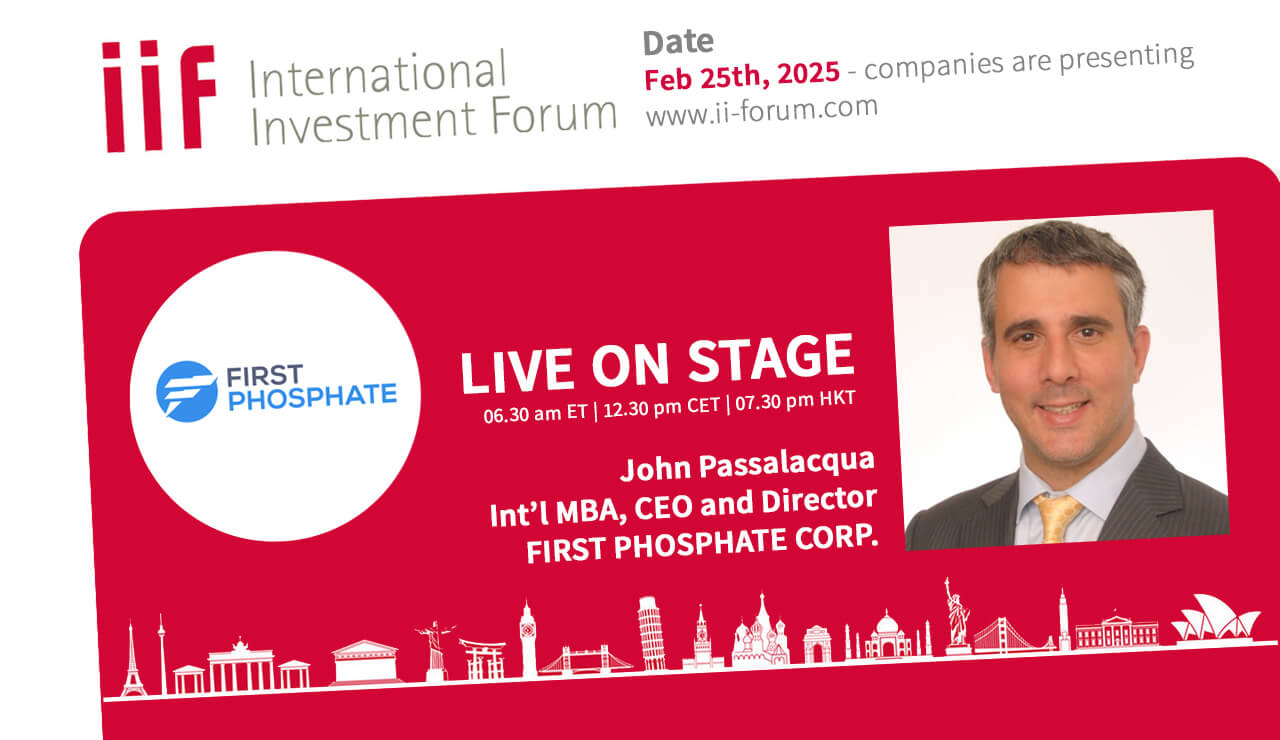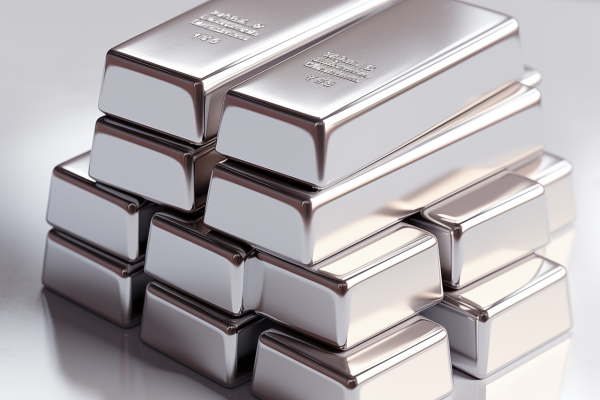February 25th, 2025 | 08:00 CET
Volkswagen, First Phosphate, Mercedes Benz – What is next for the German automotive industry after the BYD advance?
The global mobility industry is at a turning point: While the Chinese automotive giant BYD caused a stir this week with an AI-powered driving assistant, established players and niche players alike are fighting for their future viability. Whether in the race for clean drive technologies, strategic raw material partnerships, the integration of artificial intelligence, or higher margins – the challenges are diverse. In Germany, in particular, there is a sense of crisis. Therefore, we take a look at two major German automotive companies, as well as an important supplier of a critical raw material for e-mobility.
time to read: 5 minutes
|
Author:
Armin Schulz
ISIN:
VOLKSWAGEN AG VZO O.N. | DE0007664039 , FIRST PHOSPHATE CORP | CA33611D1033 , MERCEDES-BENZ GROUP AG | DE0007100000
Table of contents:

"[...] Nickel, therefore, benefits twice: firstly from its growing importance within batteries and secondly from the generally growing demand for such storage. [...]" Terry Lynch, CEO, Power Nickel
Author
Armin Schulz
Born in Mönchengladbach, he studied business administration in the Netherlands. In the course of his studies he came into contact with the stock exchange for the first time. He has more than 25 years of experience in stock market business.
Tag cloud
Shares cloud
Volkswagen – On the road to e-mobility
Volkswagen is reacting to the BYD shock with unusual collaborations: together with Qualcomm, the Company is developing its own autonomous driving platform that is to be installed in all model series from 2026. By 2027, a new entry-level model under EUR 25,000 is to be added to the ID. family. The "Trinity" project was originally supposed to enable Level 4 autonomous driving from 2026, but there have been repeated delays recently. The central innovation lever is currently IQ.DRIVE – a modular assistance system suite that ranges from adaptive cruise control to semi-autonomous driving. However, this system is not yet planned for all vehicles.
The ambitious plans are resulting in high transformation costs, which are reflected in the balance sheet. The operating margin of the core VW brand is currently only 2% – the target of 6.5% requires drastic efficiency increases. The dependency on the domestic market remains critical: strong labor unions, guaranteed jobs until 2030, and political influence, such as the 20% voting rights of the state of Lower Saxony, are hindering the necessary adjustments. In addition, software problems at the subsidiary CARIAD, in which around EUR 12 billion has been invested, and a decline in quality leadership in the e-sector are weighing on competitiveness.
Although the analysts' price target is around EUR 111 on average, earnings per share recently plummeted from EUR 7.76 to EUR 2.42. In the long term, the combination of favorable valuations according to the price-earnings ratio, which is below the industry average, economies of scale for electric models, and software partnerships (Rivian, Horizon Robotics), could be attractive. However, short-term risks remain high – particularly due to China's price war and falling BEV sales in the US. The stock has recovered from its lows of EUR 80 and is currently struggling with the EUR 100 mark. Currently, a share costs EUR 98.90.
First Phosphate – Québec project scores with economic efficiency
At the beginning of December, the Canadian mineral development company First Phosphate published its preliminary economic assessment (PEA) for the Bégin-Lamarche phosphate project in Québec. The results show how much potential the project has. The study assumes an operating period of 23 years. During this time, the mine could supply 900,000 tons of phosphate concentrate with a 40% P2O5 content and 380,000 tons of magnetite with a 92% iron oxide content annually. The key figures are impressive – a net present value (NPV) of CAD 2.1 billion before taxes and an internal rate of return (IRR) of 37.1% speak for themselves. The estimated capital costs of CAD 675 million appear manageable, given the projected amortization period of less than three years. Infrastructure advantages such as a paved access road and a nearby deep-sea port increase the attractiveness. The technical report for the PEA was filed on January 17.
The Bégin-Lamarche deposit, part of the world's largest anorthosite complex, offers long-term potential with 214 million tons of resources. Partners such as Queen's University have validated the geological makeup, which enables more environmentally friendly processing. The Company aims to supply pure phosphate for cathode material – a critical raw material for electric vehicles and energy storage. With plans to vertically integrate into battery production, First Phosphate could become an important producer of a crucial raw material. The growth potential of the lithium-iron phosphate (LFP) battery sector can be seen in Fortune Business Insights. The market is expected to grow to USD 50 billion by 2028.
Recently, First Phosphate closed an oversubscribed private placement of CAD 2.7 million. Insiders such as director Larry Zeifman participated with 285,714 flow-through shares. Overall, management holds around 30% of the shares – a positive signal for investors. In addition, the Company granted 574,389 shares to the Pekuakamiulnuatsh First Nation as part of a cooperation agreement. The combination of resource quality, market timing, and financial strength makes the Company an interesting player in the green commodities sector. The stock has gained around 70% since the beginning of the year and has been consolidating since then. The stock is currently trading at CAD 0.32.

Mercedes-Benz – Efficiency offensive and product relaunch
Mercedes-Benz is countering BYD's advance with its Advanced Driver Assistance Systems (ADAS). In the future, it will be possible to subscribe to "Predictive Road Reading", which uses artificial intelligence to analyze the road ahead. Most recently, however, the focus was on the figures for 2024. The Company recorded a decline in EBIT to EUR 13.6 billion in 2024, a decrease of EUR 6.1 billion. In addition, there was a decline in revenue of 4.5% to EUR 145.6 billion. Nevertheless, the Company is showing resilience: cash and cash equivalents remained stable at EUR 31.4 billion, supported by consistent working capital management. The passenger vehicle division is struggling with margin pressure. At 8.1%, the margin here is a full 4.5% below that, while the vans division is performing well with a return on sales of 14.6%.
Mercedes plans to reduce costs by 10% by 2027, among other things, by relocating production to Hungary, where costs are 70% lower than at German sites. At the same time, the model range is being streamlined: focus on high-margin luxury segments (Maybach, G-Class), while entry-level models such as the A-Class are being phased out. From 2025, a product offensive will start with electric innovations such as the CLA and revised combustion engines. The key to this is the modular MMA platform, which combines electric and hybrid drives – a step to increase economies of scale and regain the target margin of over 10% in the long term.
Despite a 23% decline in BEV sales in 2024, Mercedes is sticking to its electrification course. The high variable costs, driven by battery raw materials and software development, remain critical. Solid-state batteries and localized production in China, where 60% of BEV models will be localized by 2025, should help. In addition, the Company is relying on premium EVs such as the EQS series to set itself apart from competitors that are aggressive on price. The Stuttgart-based company wants to buy back shares for EUR 5 billion and has proposed a dividend of EUR 4.30. The share price fell after the figures and is currently trading at EUR 58.80.
Even though BYD caused a stir with its announcement that it would equip its assistance systems in all its models, German manufacturers are not unprepared. The European mass manufacturer Volkswagen aims to close its AI gap through tech partnerships and has not yet equipped all vehicles with driving assistants. At the moment, it is more important to get back on the road to success. The raw materials company First Phosphate owns an extremely rare, very pure raw material crucial for electric mobility and the energy storage market. With the establishment of vertical battery production in North America, the Company is well positioned. The luxury automaker Mercedes-Benz relies on existing ADAS and exclusive software subscriptions, as well as a streamlined model portfolio. With its focus on the premium sector, the ADAS are already in place.
Conflict of interest
Pursuant to §85 of the German Securities Trading Act (WpHG), we point out that Apaton Finance GmbH as well as partners, authors or employees of Apaton Finance GmbH (hereinafter referred to as "Relevant Persons") may hold shares or other financial instruments of the aforementioned companies in the future or may bet on rising or falling prices and thus a conflict of interest may arise in the future. The Relevant Persons reserve the right to buy or sell shares or other financial instruments of the Company at any time (hereinafter each a "Transaction"). Transactions may, under certain circumstances, influence the respective price of the shares or other financial instruments of the Company.
In addition, Apaton Finance GmbH is active in the context of the preparation and publication of the reporting in paid contractual relationships.
For this reason, there is a concrete conflict of interest.
The above information on existing conflicts of interest applies to all types and forms of publication used by Apaton Finance GmbH for publications on companies.
Risk notice
Apaton Finance GmbH offers editors, agencies and companies the opportunity to publish commentaries, interviews, summaries, news and the like on news.financial. These contents are exclusively for the information of the readers and do not represent any call to action or recommendations, neither explicitly nor implicitly they are to be understood as an assurance of possible price developments. The contents do not replace individual expert investment advice and do not constitute an offer to sell the discussed share(s) or other financial instruments, nor an invitation to buy or sell such.
The content is expressly not a financial analysis, but a journalistic or advertising text. Readers or users who make investment decisions or carry out transactions on the basis of the information provided here do so entirely at their own risk. No contractual relationship is established between Apaton Finance GmbH and its readers or the users of its offers, as our information only refers to the company and not to the investment decision of the reader or user.
The acquisition of financial instruments involves high risks, which can lead to the total loss of the invested capital. The information published by Apaton Finance GmbH and its authors is based on careful research. Nevertheless, no liability is assumed for financial losses or a content-related guarantee for the topicality, correctness, appropriateness and completeness of the content provided here. Please also note our Terms of use.




